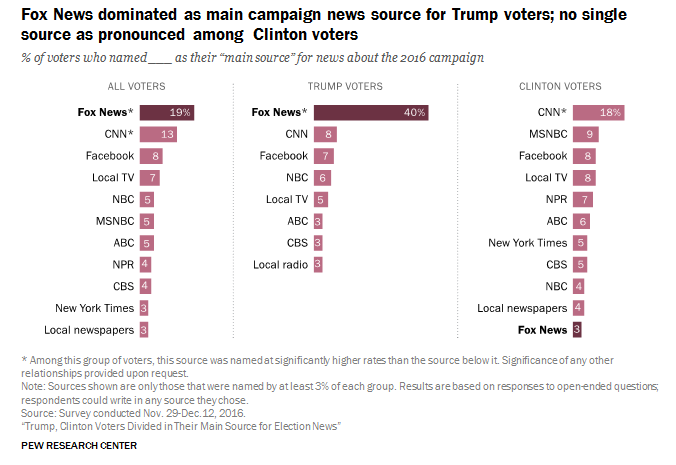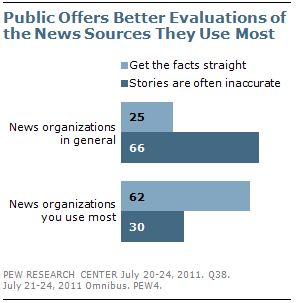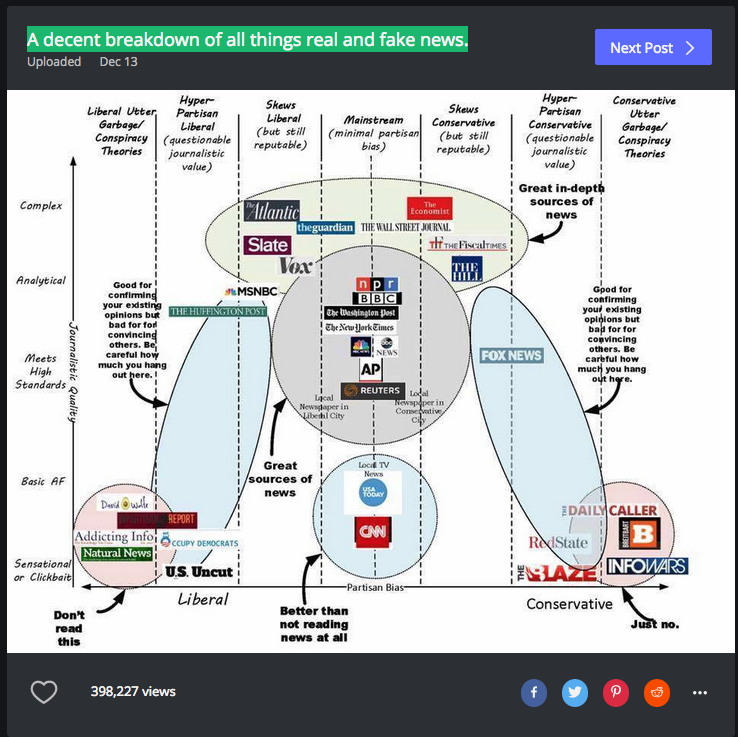So, three kids are in an adjacent room and you hear a crash. You go in the room and see a vase broken on the floor. You ask what happened:
Child 1: “The dog knocked it from the table. Terrible dog.”
You look and confirm that the dog is outside. “Fake news” starts early. You ask again:
Child 2: “We were playing and then the vase fell over, but I didn’t do it as I wasn’t closest to the table.”
You ask again:
Child 3: “We were running in the room and someone tripped me and made me knock the vase over.”
Each child reported the same event differently, but when pieced together you can get a pretty complete report of what really happened.
We benefit from seeing an event through multiple lenses.
It’s human nature to gravitate towards that which reinforces or doesn’t challenge our existing views. This appears to be the case in our media consumption. (In psychology this is called the selective exposure theory.)
According to Pew Research Center Studies:
At this point, we don’t expect to even agree on the basic facts.
Pew Research Center – Basic facts are in dispute

This isn’t surprising, as we don’t start from the same place.
Trump supporters relied heavily on Fox for their election news and information. No single source was as pronounced among Clinton supporters, but this is perhaps due to the perception that there are more liberal leaning news options.) (Pew Research Center – Trump, Clinton Voters Divided in Their Main Source for Election News)

And we have tended to think that our own news sources are more trustworthy than others.
Press Widely Criticized, But Trusted More than Other Information Sources

The path to rebuilding common ground starts with some understanding of other sides of an issue. But where to start?
While this diagram from Imgur may not be perfect (the center may be more liberal than is shown here), but it’s a good place to start. Try to:
- Focus on reading and sharing from sites that are more centered
- Venture out of your safety zone
- Remember that understanding something doesn’t require that you agree with it
It may not be pleasant, but we need to make the effort.

My two cents:
- I am not a fan of ANY cable TV news. In order to fill a 24-hours news cycle, the headlines are hyperbolic and views too often vitriolic. And too often we are watching the news while doing other things, and can’t give the attention that the topics require.
- Try reading instead. You control what you read, when you read it and you can more easily compare multiple sources.
- You may want to start introduce new sources slowly and not venture into the comments section until you are very ready.
- While social media is good for entertainment, it isn’t ideal for gaining an understanding of an topic. Use sparingly.
Sources
